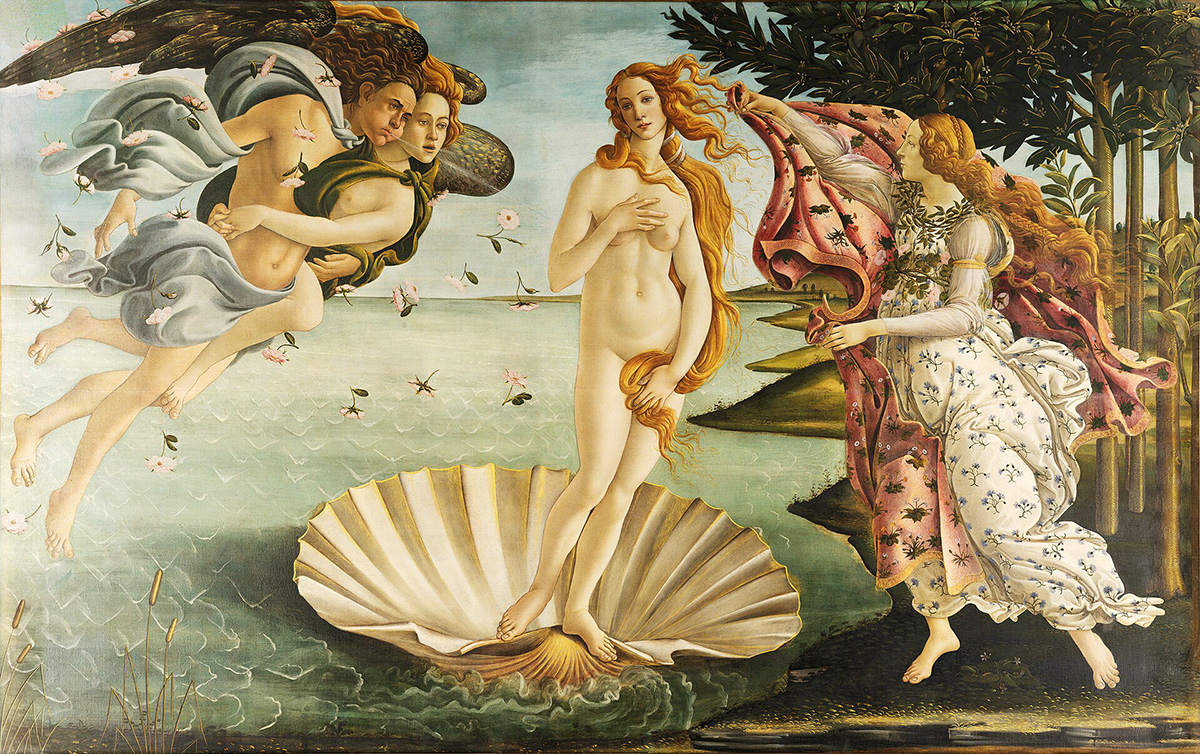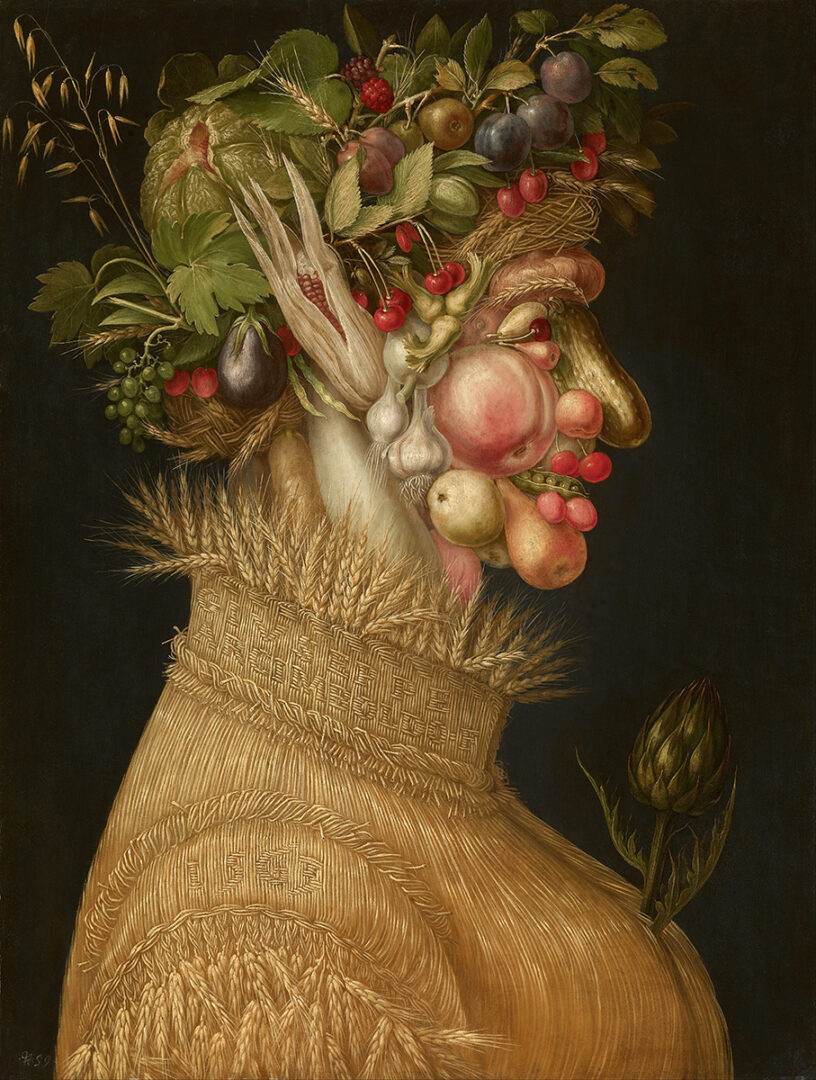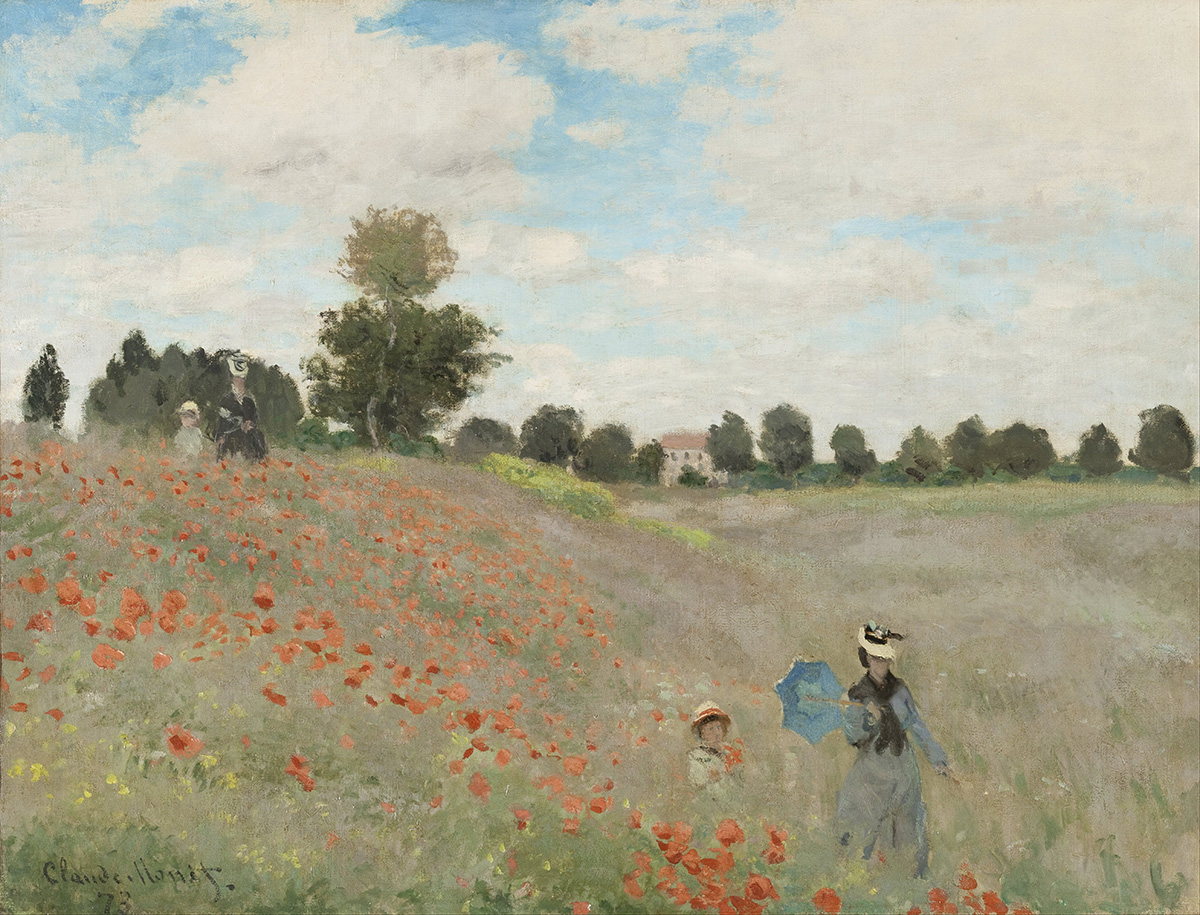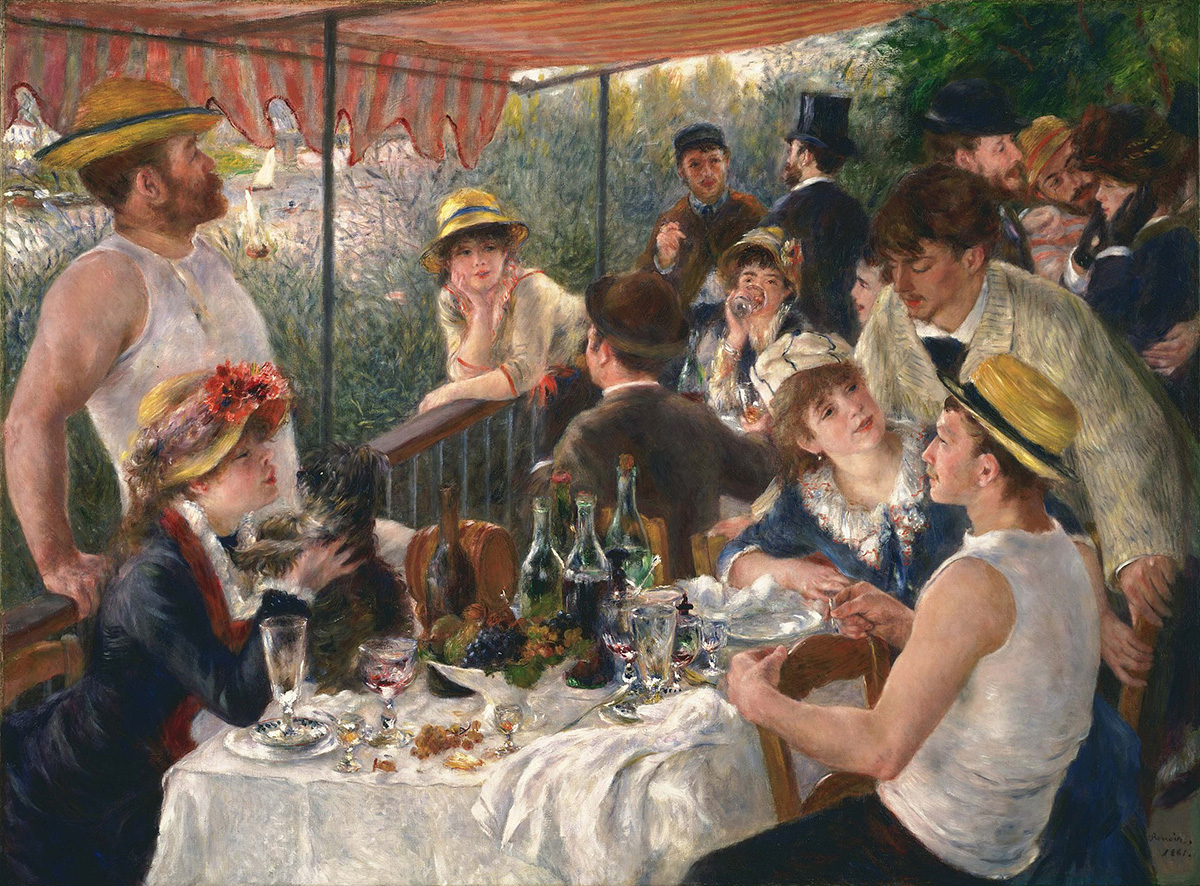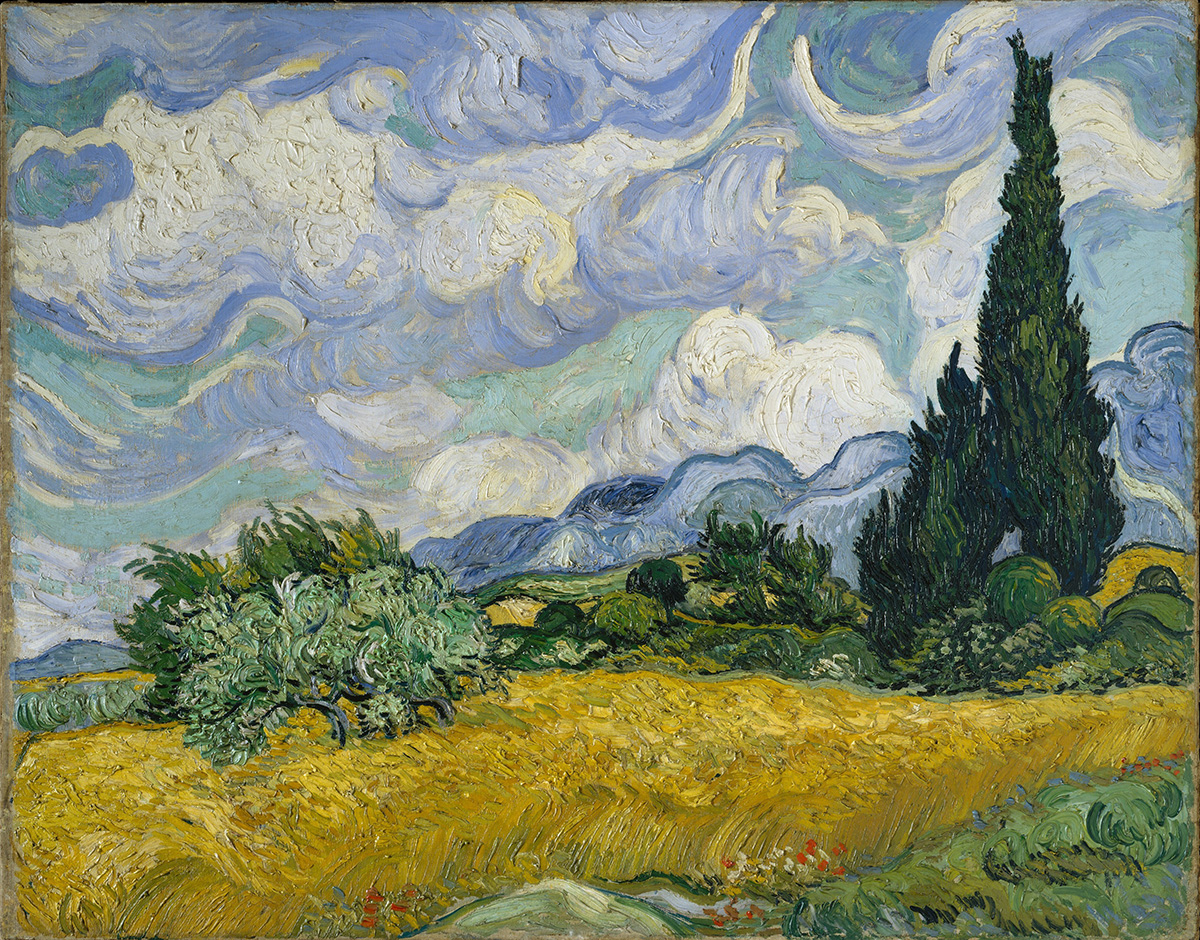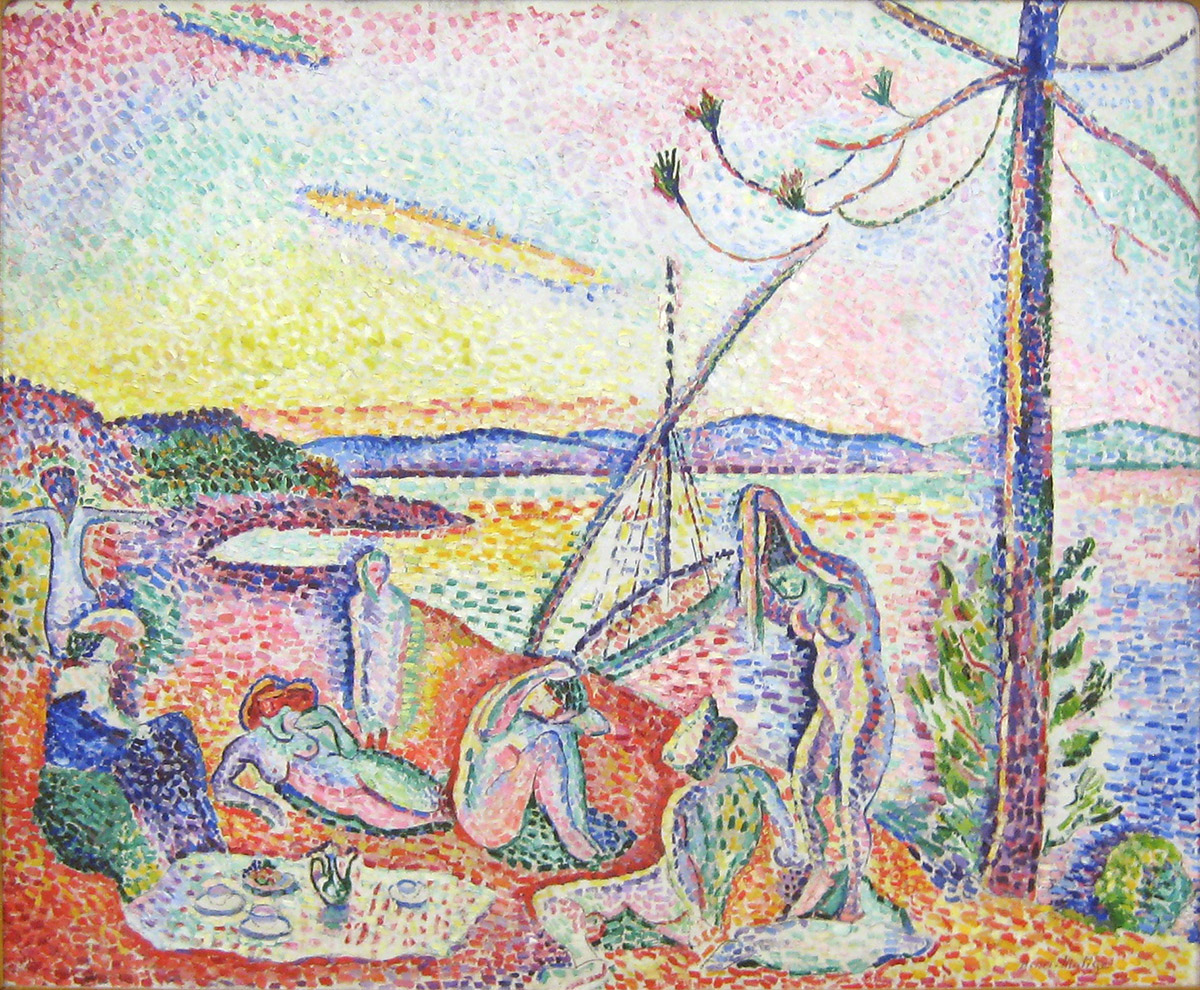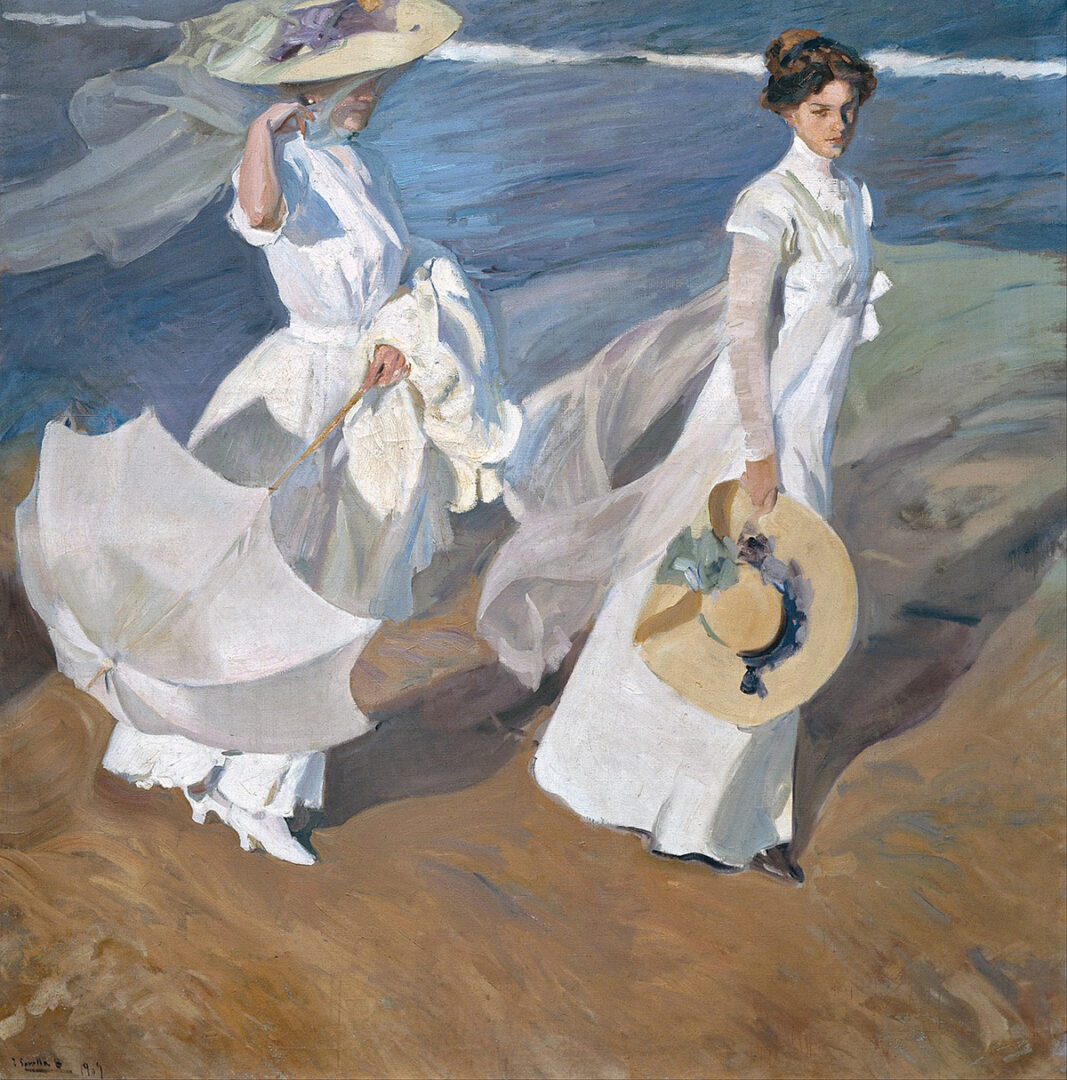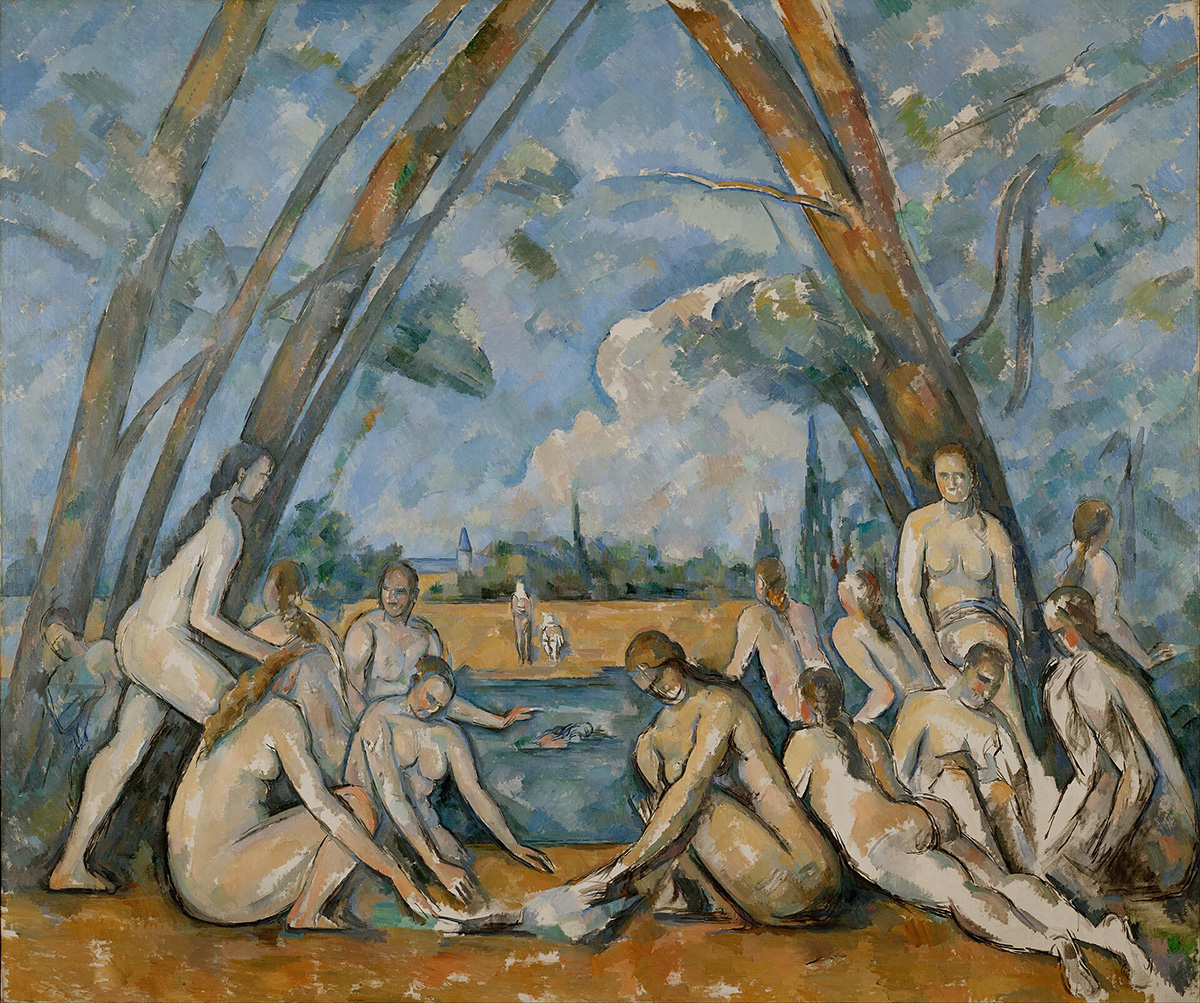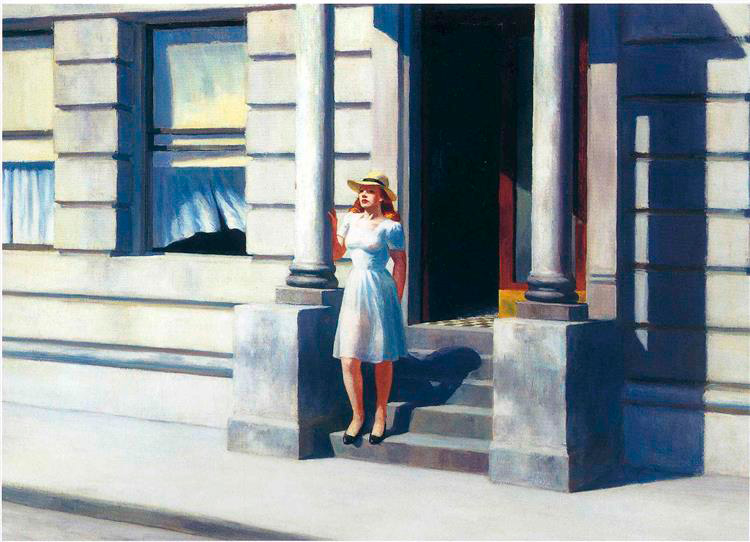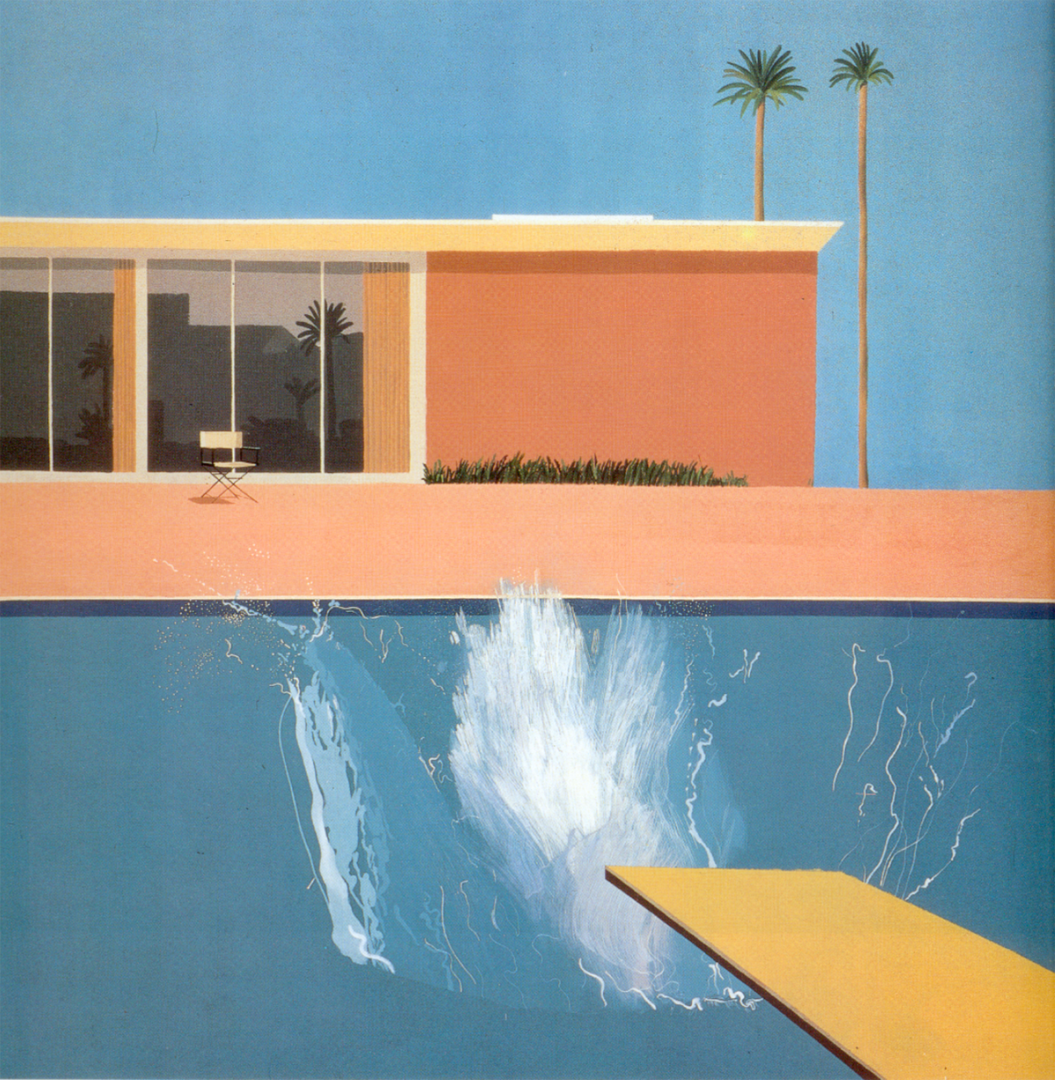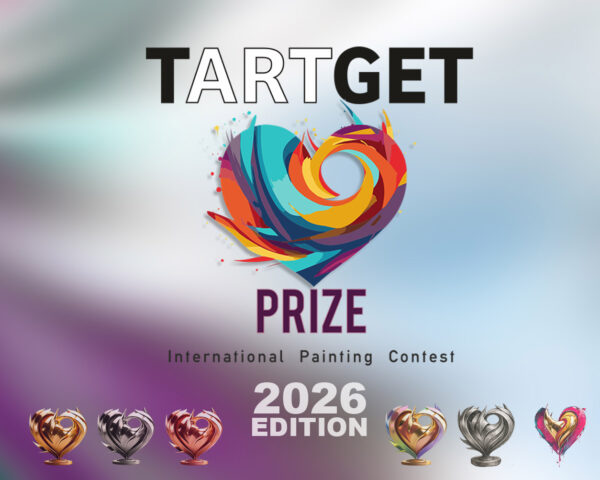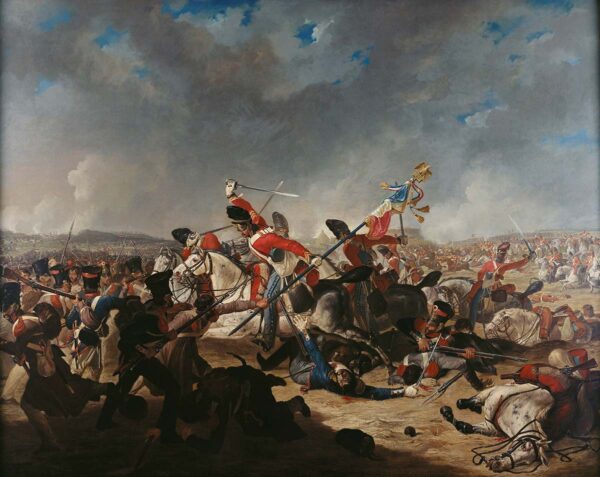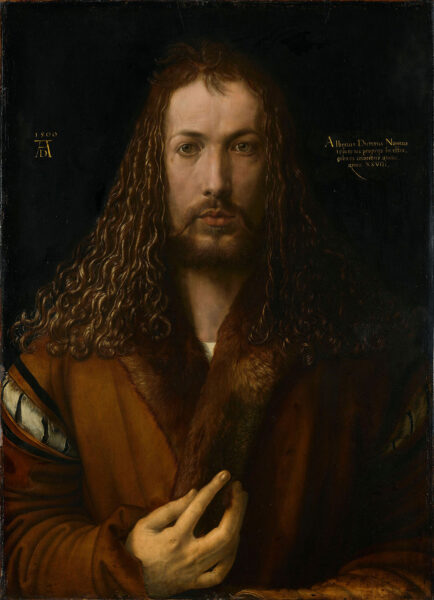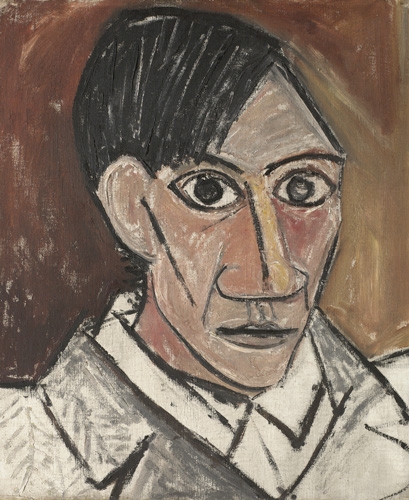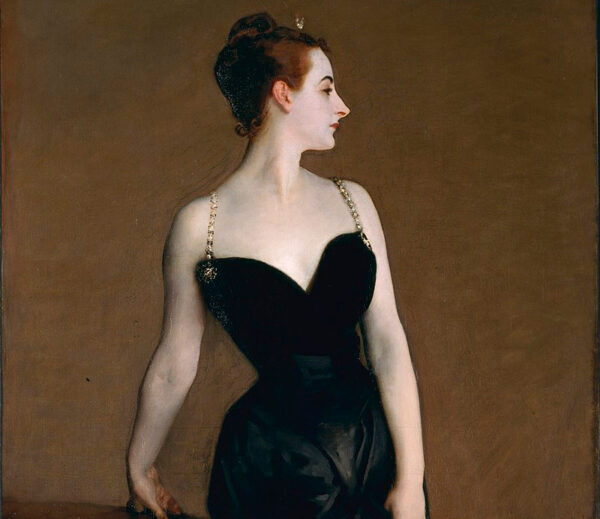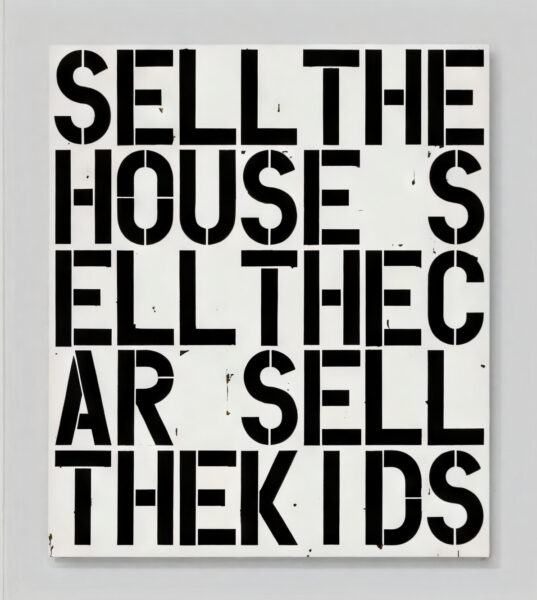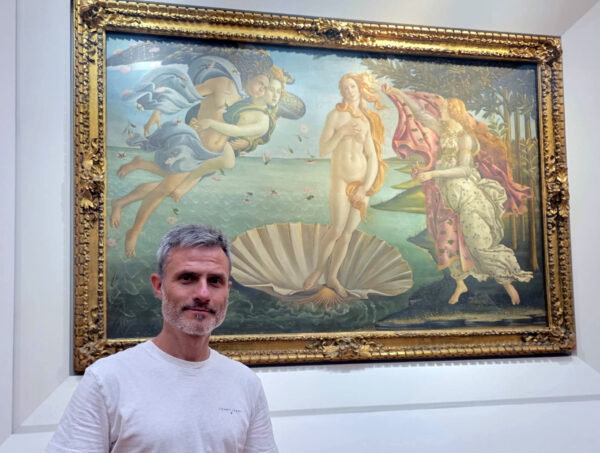1. Sandro Botticelli – The Birth of Venus (c. 1485)
The mother of all summers
Botticelli depicted the goddess of love emerging from the sea on a pecten maximus shell (a symbol of pilgrimage). Roses float around her because, according to legend, they were born with Venus. Commissioned by the Medici, this work fuses mythology and Neoplatonic philosophy, becoming the archetype of the dream beach.
2. Giuseppe Arcimboldo – Summer (1573)
The Renaissance meme
Arcimboldo composed a face using fruits, cereals, and flowers for Emperor Rudolf II. The corn in the ear was an exotic rarity in the 16th century. This surreal allegory celebrates summer abundance with humor and botanical virtuosity, anticipating conceptual art.
3. Claude Monet – Poppy Field near Argenteuil (1873)
Breeze painted with short brushstrokes
Monet worked in situ with three simultaneous easels to capture the changing light. His wife Camille, the figure among the flowers, walks under a vibrant blue sky. The red poppies seem to sway with the rhythm of the wind, conveying the fleetingness of a sunny day.
4. Pierre-Auguste Renoir – Luncheon of the Boating Party (1881)
Champagne and complicity under the sun
Renoir immortalized his friends on the terrace of Maison Fournaise, a restaurant by the Seine. The model Aline Charigot (his future wife) holds a small dog, while the light filters through the vines. The scene exudes bourgeois hedonism and the joy of long summer lunches.
5. Vincent van Gogh – Wheat Field with Cypresses (1889)
Burning yellows
Van Gogh used pure chrome (a toxic pigment) to create the vibrant yellow that evokes the sun as a physical force. The cypresses twist like green flames under an intense blue sky. Painted near Saint-Rémy, this work conveys the almost mystical energy of Provençal summer.
6. Henri Matisse – Luxe, calme et volupté (1904)
The title says it all
Inspired by a Baudelaire verse, Matisse portrays naked bathers in a Mediterranean landscape. His “free pointillism” vibrates with flashes of light, transforming hedonism into a poetic right. The work is a manifesto for life as a sensory pleasure.
7. Joaquín Sorolla – Walk on the Beach (1909)
Dresses waving like flags of happiness
Sorolla painted his wife Clotilde and his daughter María on the Valencian beach of El Cabañal. The white dresses float against the pink sand and turquoise sea, captured with loose brushstrokes that make you feel the breeze. It is a hymn to Mediterranean light and family intimacy.
8. Paul Cézanne – The Bathers (1905)
Nudes that are landscape
Cézanne broke taboos by fusing asexual bodies with nature. The figures are integrated into the forest like more trees, reflecting his search for “harmony parallel to nature.” Picasso collected his sketches, considering it a cornerstone of modern art.
9. Edward Hopper – Summertime (1943)
The loneliness that resonates in the hot silence
The model Donia Massin, dressed in white, crosses an imaginary architectural threshold. The scorching light casts long shadows, accentuating the summertime paradox: external heat versus emotional coldness. Hopper turns stillness into a psychological drama.
10. David Hockney – A Bigger Splash (1967)
The 'splash' that lasted 2 weeks
Hockney painted the splash in hours, but the water took him 14 days of transparent layers. The Californian pool, empty of human figures, symbolizes hedonism and unease: the artist was born with synesthesia, seeing colors in response to music.
Summer in art is coast and sun, light and conversation, salt on a tan and that frozen instant before a jump into the water. But it is also a mirror of every time and place; from the Renaissance abundance of Arcimboldo to the pools of Hockney—symbols of an artificial paradise threatened by the climate crisis—these works remind us that the season is a celebration and also a warning. Perhaps, when autumn shortens the afternoons, it will be enough to visit a museum to rescue from oblivion that eternal sun that artists trap on their canvases.
PRESS CONTACT:
Ismael Terriza Reguillos // @terrizareguillos
dircom@tartgetpaintingprize.com


